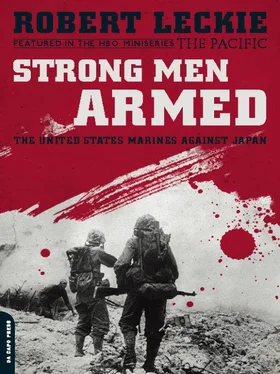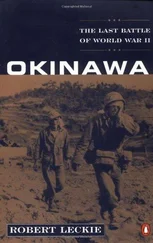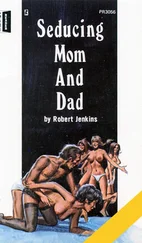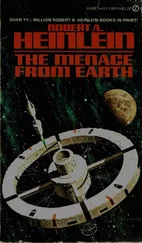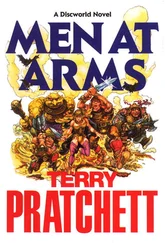Robert Leckie - Strong Men Armed
Здесь есть возможность читать онлайн «Robert Leckie - Strong Men Armed» весь текст электронной книги совершенно бесплатно (целиком полную версию без сокращений). В некоторых случаях можно слушать аудио, скачать через торрент в формате fb2 и присутствует краткое содержание. Город: Cambridge, Год выпуска: 2010, ISBN: 2010, Издательство: Da Capo Press, Жанр: nonf_military, на английском языке. Описание произведения, (предисловие) а так же отзывы посетителей доступны на портале библиотеки ЛибКат.
- Название:Strong Men Armed
- Автор:
- Издательство:Da Capo Press
- Жанр:
- Год:2010
- Город:Cambridge
- ISBN:978-0-786-74832-7
- Рейтинг книги:3 / 5. Голосов: 1
-
Избранное:Добавить в избранное
- Отзывы:
-
Ваша оценка:
- 60
- 1
- 2
- 3
- 4
- 5
Strong Men Armed: краткое содержание, описание и аннотация
Предлагаем к чтению аннотацию, описание, краткое содержание или предисловие (зависит от того, что написал сам автор книги «Strong Men Armed»). Если вы не нашли необходимую информацию о книге — напишите в комментариях, мы постараемся отыскать её.
Strong Men Armed — читать онлайн бесплатно полную книгу (весь текст) целиком
Ниже представлен текст книги, разбитый по страницам. Система сохранения места последней прочитанной страницы, позволяет с удобством читать онлайн бесплатно книгу «Strong Men Armed», без необходимости каждый раз заново искать на чём Вы остановились. Поставьте закладку, и сможете в любой момент перейти на страницу, на которой закончили чтение.
Интервал:
Закладка:
Beneath the same red sky in Tokyo, high-ranking officers of the Imperial Army and Navy reported the results to cheering thousands in Hinomiya Stadium. They also reported the news of the “recapture” of the Guadalcanal airfield, and then, to bursts of thunderous applause, came this announcement:
“…and the stranded 10,000 Marines, victims of Roosevelt’s gesture, have been practically wiped out.”
It was a great day in Tokyo, and at Rabaul, Lieutenant General Haruyoshi Hyakutate, gratified to hear that his humble part in the victory had not been overlooked, turned to tidying up his triumph.
Hyakutate was going to use all the 20,000 soldiers then available to him to dispose of the remaining Marines. He would be sure this time, for reports filtering back to Rabaul from the Kawaguchis suggested that these Marines did not conform to the Imperial Staff Manual descriptions of Americans. They were beasts, the refuse of jails and insane asylums. They drank blood. They cut off the arms of their prisoners and staked their bodies to the earth. Then they drove over them in steamrollers.
No, Hyakutate would not gamble again. He would send all the Sendai Division. Advance units would go down The Slot in fast destroyer-transports. They would be followed by the Sendai’s commander, Lieutenant General Masao Maruyama, then the main body aboard slower transports, next the combined aerial and sea power of the Imperial Navy—and finally by Lieutenant General Haruyoshi Hyakutate, who would sail down in October in time to accept the American surrender.
In the third week of September the Tokyo Express began running troops to Guadalcanal again.
There were now 23,000 Marines on Guadalcanal, for the Seventh Regiment had come in.
Becoming bold in the wake of the Torpedo Junction disaster, Kelly Turner had turned the six transports around while still at sea and started them for Guadalcanal again. Under cover of hazy skies, assisted by the plastering of Rabaul by Army bombers, the transports sailed through Torpedo Junction on the sixteenth and seventeenth and arrived off Lunga Roads at Guadalcanal before dawn of September 18. At a few minutes before six the men of the Seventh began coming ashore.
Now, bolstered by 4,262 fresh men, and more of his combat troops coming over from Tulagi, Major General Alexander Vandegrift changed his style of defense.
The system of strong points with artillery covering the gaps was abandoned in favor of a ring around Henderson Field and the new fighter strip. It meant spreading a lot of men thin. It meant defending every point, but weakly, as opposed to defending some vital points, but strongly. And thus it would also mean that wherever the enemy attacked he would be hitting with the most against Vandegrift’s least. It was an old-fashioned defense, as surely outdated by artillery as the long bow had made an anachronism of mounted knights. But the Japanese artillery had been as ineffectual as the Marines’ had been superb.
So Vandegrift drew his ring around Henderson Field. With barbed wire, axes, shovels, sandbags, machetes and bulldozers now in abundance, his men began building a tight bristling defensive ring which would lead one Japanese officer to snort that U. S. Marines were actually not true jungle-fighters because “they always cut the jungle down.” The cordon followed approximately the same oval-shaped dispositions as the old beachhead line 3,500 yards deep and 7,500 yards wide, but all the gaps were plugged—especially the big ones to the south of the airfield.
Coconut groves rang to the strokes of the axe. Big trees came crashing down, were chopped into sections and dragged over wide sandbagged holes. More sandbags went atop the logs and over this were planted clumps of grass. In that lush-growing moist heat, the grass quickly took root and the rough-hewn pillboxes took on the appearance of low hummocks. Fields of fire—thatis, cleared lanes between the guns and the enemy—were burned out in the grass or hacked out in the jungle. Apron after apron of barbed wire was strung until many of the Marine fronts were as wicked laceworks of glittering black wire and tan, charred grass. Riflemen learned to dig Japanese spider-holes, those vertical foxholes in which a man could stand to fight. Mortarmen sandbagged their heaps of shells. Booby-traps were fashioned of hand grenades with partially loosened pins attached to trip wires. Machine-gunners set up interlocking crossfires or registered their guns for night firing. Artillerymen plotted the fronts, registered the trails, marked the likely assembly areas. As the men worked, barely nourished by two daily meals of wormy rice, daily patrols went winding into the jungle.
Patrols were the eyes and ears of that line of defense, the feelers that went out daily—east,south and west—probing for the presence of the enemy. They went out in groups of a dozen men, occasionally in company strength. They were lightly armed. The men carried only a canteen of water. They fastened their gear tight to prevent tell-tale clinks, they daubed their faces with mud, adorned their blouses and helmets with branches—and moved out slowly, hugging the trails to right and left with intervals of a dozen feet between them, listening for the sudden cry of birds that might betray a lurking enemy, moving at a crawling, crablike rhythm, at a pace so maddeningly slow that tension became multiplied, all the sounds so magnified that the rustling of a lizard might echo in helmet-muffled ears like the movement of a human body.
Patrols moved warily because ambushes were frequent during September. On one of them a company scouting the Lunga south of the perimeter was struck by a sudden storm of fire. Men could hear Japanese calling from the jungle, “Come here, please. Come here, please.”
Private Jack Morrison saw Marines slump to earth around him. He felt white-hot pain sear his arm and his chest. He shouted in agony and toppled into a bush, his body obscured by undergrowth, his feet sticking out over the trail. To his right along the riverbank a Marine had fallen behind a log. He was moaning aloud. Behind him, hidden in a foxhole, was another Marine. He was Pfc. Harry Dunn. He was not wounded. He was playing dead. For in the complete surprise and success of that assault, the ambushed company had pulled back down the trail.
It was late afternoon and Morrison lay in the bush listening to the Japanese running about, jabbering to each other as they hunted down the wounded and bayoneted them. Great retching waves of pain swept over his body, but he ground his teeth and kept silent. He had heard the Marine behind the log moan. He had seen the Jap jump over the log with upraised bayonet, had seen it slammed down—once, twice—and had heard no more moaning.
Sometimes a merciful blackness engulfed Morrison. He would pass out, returning to the agony of consciousness, pass out again. He could feel the blood oozing from his wounds, sense the strength leaving him. His thirst was a torment. Still he dared not move—not even after night had fallen, for the enemy was still active.
Toward midnight he felt a presence alongside him. A hand came over his mouth. He stiffened in terror, then relaxed to hear the voice whisper in his ear, “It’s all right. It’s me—Harry Dunn.” Slowly, gently, Dunn pulled Morrison away from the trail and into a thicket. He took off the wounded youth’s shirt and tried to bind his wounds. But there was so much blood the shirt became soaked and was useless. Dunn threw it away.
Dunn crept out of the thicket in search of water, for both men’s canteens were empty. He crawled to the dead Marine behind the log. But the body had been completely looted. Helmet, weapon, belt, canteen, all were gone. Dunn looked to his right. He could see the Lunga gleaming darkly, could hear the wavelets lapping her shores. But he dared not break for it. He would have to cross a clearing in full view of the Japanese, still moving around the riverbank, still calling out loudly to one another.
Читать дальшеИнтервал:
Закладка:
Похожие книги на «Strong Men Armed»
Представляем Вашему вниманию похожие книги на «Strong Men Armed» списком для выбора. Мы отобрали схожую по названию и смыслу литературу в надежде предоставить читателям больше вариантов отыскать новые, интересные, ещё непрочитанные произведения.
Обсуждение, отзывы о книге «Strong Men Armed» и просто собственные мнения читателей. Оставьте ваши комментарии, напишите, что Вы думаете о произведении, его смысле или главных героях. Укажите что конкретно понравилось, а что нет, и почему Вы так считаете.
